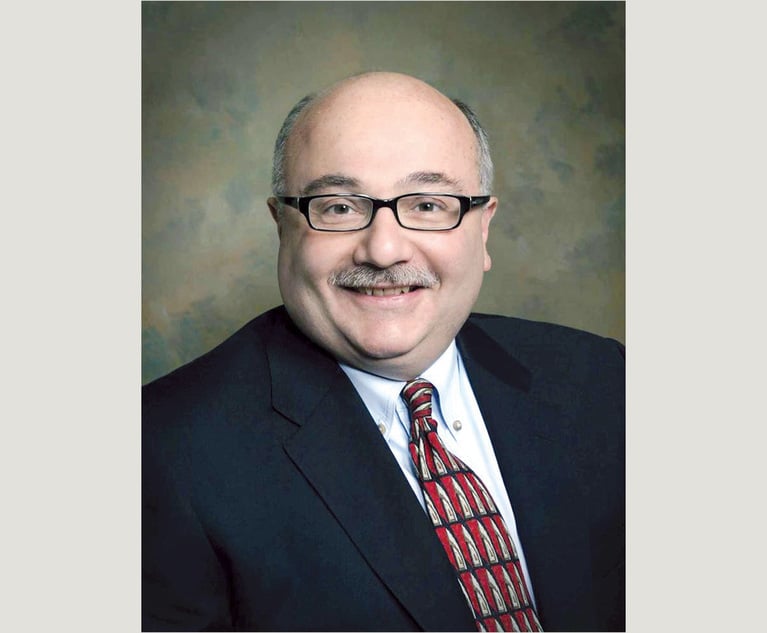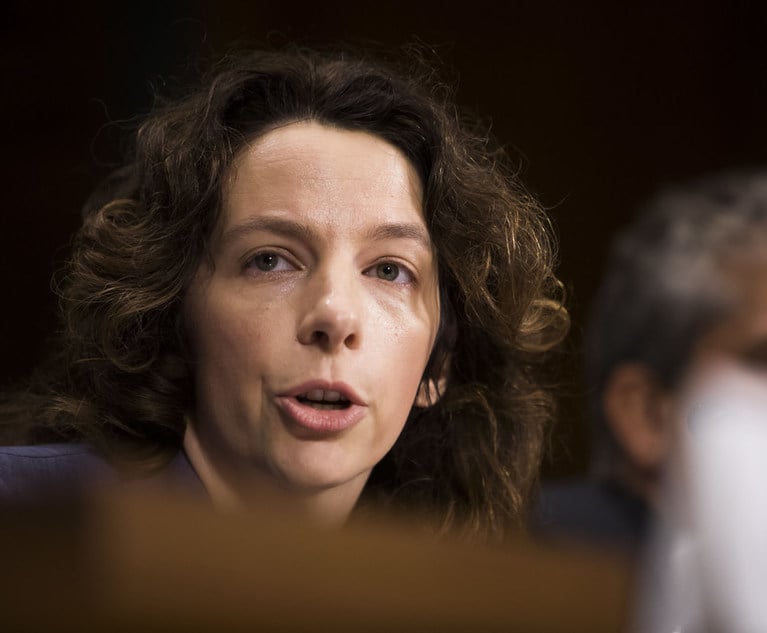The Absolute Immunity of Police Officer Witnesses
In his Section 1983 Litigation column, Martin A. Schwartz writes: For a §1983 claim based upon a law enforcement officer's perjurious testimony to succeed, the plaintiff will have to overcome the officer's absolute witness immunity, which applies regardless of how malevolent the officer's wrongdoing, or how injurious it was to the arrestee, and even if it caused a wrongful conviction.
September 14, 2017 at 02:02 PM
11 minute read
A substantial number of §1983 plaintiffs allege that their constitutional rights were violated as a result of a law enforcement officer's perjurious grand jury or trial testimony. These claims typically assert violations of one or more of the following constitutional rights: (1) the due process right to a fair criminal trial; (2) deprivation of liberty from fabrication of evidence; and (3) the Fourth Amendment right to be free of “malicious prosecution.”
For a §1983 claim based upon a law enforcement officer's perjurious testimony to succeed, the plaintiff will have to overcome the officer's absolute witness immunity. The U.S. Supreme Court has granted absolute immunity to law enforcement officers who testify either at a criminal trial, Briscoe v. LaHue, 460 U.S. 325 (1983), or before a grand jury, Rehberg v. Paulk, 566 U.S. 356, 132 S. Ct. 1497 (2012). This absolute immunity applies regardless of how malevolent the officer's wrongdoing, or how injurious it was to the arrestee, and even if it caused a wrongful conviction. The decision in Rehberg not only extended Briscoe absolute immunity for trial testimony to grand jury testimony, but also held that absolute immunity encompasses an officer's preparation for testifying, as well as an alleged conspiracy to give perjurious testimony. The court reasoned that if absolute immunity did not encompass witness preparation and an alleged conspiracy to give false testimony, the §1983 plaintiff would be able to circumvent the immunity by claiming damages not for the officer's testimony itself, but for his conduct in preparation for the testimony. “In the vast majority of cases involving a claim against a grand jury witness, the witness and the prosecutor … engage in preparatory activity, such as a preliminary discussion in which the witness relates the substance of his intended testimony.” Rehberg, 132 S. Ct. at 1506-07. The court refused to allow absolute witness immunity to be “so easily frustrated.” Id. at 1507 (footnote omitted). Rehberg is strong medicine indeed!
A §1983 plaintiff confronted with absolute witness immunity may respond that he is not seeking damages for the officer's in-court testimony or even for its preparation, but for out-of-court conduct such as falsifying an affidavit or police report. The court in Rehberg spoke to this issue in a footnote to its conclusion that absolute witness immunity encompasses acts in preparation for testimony:
This content has been archived. It is available through our partners, LexisNexis® and Bloomberg Law.
To view this content, please continue to their sites.
Not a Lexis Subscriber?
Subscribe Now
Not a Bloomberg Law Subscriber?
Subscribe Now
NOT FOR REPRINT
© 2025 ALM Global, LLC, All Rights Reserved. Request academic re-use from www.copyright.com. All other uses, submit a request to [email protected]. For more information visit Asset & Logo Licensing.
You Might Like
View All
Decision of the Day: District Judge Vacates Magistrate's Ruling to Disqualify Prosecutors in Kidnapping Case


Decision of the Day: Judge Precludes Ballistics Expert's Opinion on Scene for 2016 Fatal Police Shooting
Trending Stories
- 1Uber Files RICO Suit Against Plaintiff-Side Firms Alleging Fraudulent Injury Claims
- 2The Law Firm Disrupted: Scrutinizing the Elephant More Than the Mouse
- 3Inherent Diminished Value Damages Unavailable to 3rd-Party Claimants, Court Says
- 4Pa. Defense Firm Sued by Client Over Ex-Eagles Player's $43.5M Med Mal Win
- 5Losses Mount at Morris Manning, but Departing Ex-Chair Stays Bullish About His Old Firm's Future
Who Got The Work
J. Brugh Lower of Gibbons has entered an appearance for industrial equipment supplier Devco Corporation in a pending trademark infringement lawsuit. The suit, accusing the defendant of selling knock-off Graco products, was filed Dec. 18 in New Jersey District Court by Rivkin Radler on behalf of Graco Inc. and Graco Minnesota. The case, assigned to U.S. District Judge Zahid N. Quraishi, is 3:24-cv-11294, Graco Inc. et al v. Devco Corporation.
Who Got The Work
Rebecca Maller-Stein and Kent A. Yalowitz of Arnold & Porter Kaye Scholer have entered their appearances for Hanaco Venture Capital and its executives, Lior Prosor and David Frankel, in a pending securities lawsuit. The action, filed on Dec. 24 in New York Southern District Court by Zell, Aron & Co. on behalf of Goldeneye Advisors, accuses the defendants of negligently and fraudulently managing the plaintiff's $1 million investment. The case, assigned to U.S. District Judge Vernon S. Broderick, is 1:24-cv-09918, Goldeneye Advisors, LLC v. Hanaco Venture Capital, Ltd. et al.
Who Got The Work
Attorneys from A&O Shearman has stepped in as defense counsel for Toronto-Dominion Bank and other defendants in a pending securities class action. The suit, filed Dec. 11 in New York Southern District Court by Bleichmar Fonti & Auld, accuses the defendants of concealing the bank's 'pervasive' deficiencies in regards to its compliance with the Bank Secrecy Act and the quality of its anti-money laundering controls. The case, assigned to U.S. District Judge Arun Subramanian, is 1:24-cv-09445, Gonzalez v. The Toronto-Dominion Bank et al.
Who Got The Work
Crown Castle International, a Pennsylvania company providing shared communications infrastructure, has turned to Luke D. Wolf of Gordon Rees Scully Mansukhani to fend off a pending breach-of-contract lawsuit. The court action, filed Nov. 25 in Michigan Eastern District Court by Hooper Hathaway PC on behalf of The Town Residences LLC, accuses Crown Castle of failing to transfer approximately $30,000 in utility payments from T-Mobile in breach of a roof-top lease and assignment agreement. The case, assigned to U.S. District Judge Susan K. Declercq, is 2:24-cv-13131, The Town Residences LLC v. T-Mobile US, Inc. et al.
Who Got The Work
Wilfred P. Coronato and Daniel M. Schwartz of McCarter & English have stepped in as defense counsel to Electrolux Home Products Inc. in a pending product liability lawsuit. The court action, filed Nov. 26 in New York Eastern District Court by Poulos Lopiccolo PC and Nagel Rice LLP on behalf of David Stern, alleges that the defendant's refrigerators’ drawers and shelving repeatedly break and fall apart within months after purchase. The case, assigned to U.S. District Judge Joan M. Azrack, is 2:24-cv-08204, Stern v. Electrolux Home Products, Inc.
Featured Firms
Law Offices of Gary Martin Hays & Associates, P.C.
(470) 294-1674
Law Offices of Mark E. Salomone
(857) 444-6468
Smith & Hassler
(713) 739-1250







